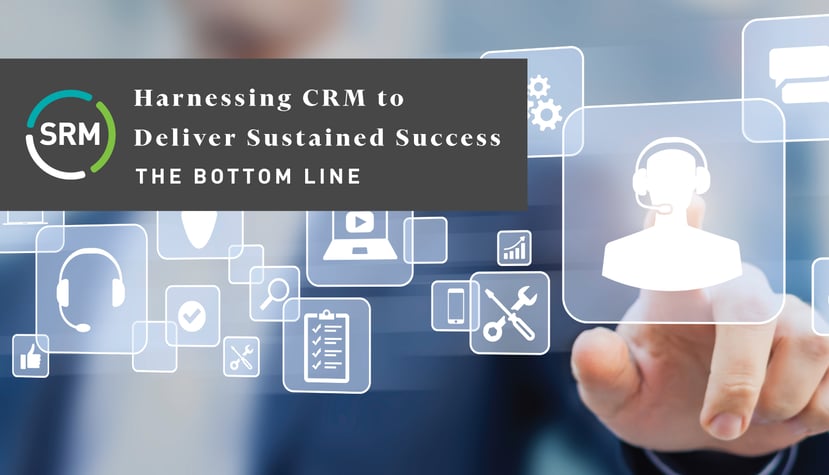
The concept of Customer Relationship Management (CRM) dates back centuries – even if the “database” resided in a shopkeeper’s memory or, at best, a handwritten ledger. It wasn’t until the 1980s that modern marketing techniques sought to harness growing computing power, turning CRM into a multi-billion-dollar industry.
Modern CRM solutions are central to daily business operations across numerous sectors, housing customer contact history and lifecycle management data, informing customer acquisition strategies, supporting workflows to drive efficiency across sales channels and other mission-critical areas, and generating real-time performance data.
Given continual improvements in functionality and design, many companies – especially banks and credit unions given their tendency toward legacy IT systems – are likely due for a CRM refresh. In our experience, these initiatives have the potential for failure if focused narrowly on their technological aspects. CRM should be approached as a discipline to unlock its true value, starting and ending with the cultural change necessary to embed the adoption of a CRM mindset.
Begin with Strategy, Not Technology
It’s undeniably critical for every organization to select the CRM vendor and solution best suited to its needs. While universal factors like pricing and service levels are important, far more decisions will be company specific.
CRM systems can provide value in many ways, so leadership needs to start by reaching a consensus on the CRM’s purpose, levels of integration with existing platforms and how it will contribute to achieving business goals. There should be an agreement on where CRM will be deployed within the organization. Just as importantly, it should be determined where it will not be deployed and why – and will these areas be excluded only temporarily.
Along with aligning functional goals, these exercises will help determine a reasonable timeline and the project’s expected benefits. Decision makers must understand and embrace the business case – its intrinsic and developing value, as CRM’s payback period can be lengthy and not immediately quantifiable.
Let the Data Be Your Guide
Even at this juncture, analyzing what data is currently available – and what additional data should be harnessed to meet business requirements – should precede vendor selection. This discovery process will involve multiple business areas. As such, a governance and portfolio management process should be instituted that focuses on creating future-looking detailed business and data requirements and to identify and manage interdependencies. At this point, SRM typically recommends issuing a pre-qualification questionnaire to potential providers before launching a formal RFP process. Care should be taken not to define desired capabilities too narrowly in order to allow room for future expansion.
These prerequisites may sound daunting – and for good reason. Implementing a CRM solution is a significant undertaking requiring broad organizational buy-in and resource commitment to be executed successfully. The single biggest failure point that SRM observes across many organizations is adoption – ostensibly, only through cultural change and consistent use by all staff will CRM’s true value be realized.
The Bottom Line
SRM has significant experience managing end-to-end CRM programs, supporting numerous clients globally. Our work extends beyond technology selection and contract negotiation to cover key inputs like benchmarking, requirements definition, and support of implementation and organizational adoption. If you are embarking on or considering a CRM initiative, why not reach out and contact our experts to understand how we can help you.


